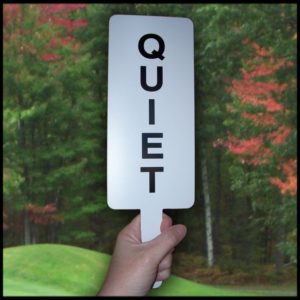 Do you know the symptoms of Misophonia? Many people who suffer from this condition or those that have a loved one suffering from it, have never heard of it until their doctor discusses it with them. In fact, some people may not initially believe there is anything wrong with them. It can be easy to avoid taking a closer look at the symptoms you do have, and that can be a problem in the long term.
Do you know the symptoms of Misophonia? Many people who suffer from this condition or those that have a loved one suffering from it, have never heard of it until their doctor discusses it with them. In fact, some people may not initially believe there is anything wrong with them. It can be easy to avoid taking a closer look at the symptoms you do have, and that can be a problem in the long term.
The symptoms of Misophonia deserve attention because this condition can worsen and lead to long lasting impressions on a person’s life. With treatment and care from a trusted LCSW-R in New York City, you can get the help you need.
What Are the Common Symptoms of This Condition?
 Everyone has a different trigger sound. This is the specific sounds that causes those with Misophonia to react in a negative way. The sound in itself is not the cause of the condition, but it is the cause of the reaction. The reaction is where you’ll find the most common symptoms of this condition. What are the most common trigger sounds?
Everyone has a different trigger sound. This is the specific sounds that causes those with Misophonia to react in a negative way. The sound in itself is not the cause of the condition, but it is the cause of the reaction. The reaction is where you’ll find the most common symptoms of this condition. What are the most common trigger sounds?
-
- Wheezing
- Snoring
- Nose whistling
- Sniffling
- Chewing with the mouth open
- Teeth grinding
- Throat clearing
- Slurping
- Talking with food in the mouth
When these sounds are heard, a person with Misophonia may react to them. Most people will not react to all of these sounds, but they will have a specific type of sound they dislike strongly. When they hear it, you may notice symptoms of this condition. Those symptoms may include:
-
- Fear
- Irritation
- Rage
- He or she may distance themselves from the sound
- Yelling or hitting the person making the sound
- Anxiety
- A reaction that is not normal for the sound itself
- Development of hate and anger towards the person
It is important to know that for a person with Misophonia, the condition is not controllable. In other words, they cannot control the reaction they have to the sound. While it may seem silly to those who do not have this condition, for those that do have it, those trigger sounds can become very worrisome.
Does this sound like a condition you may have? Are you noticing symptoms of Misophonia in your loved one? If so, you need to take action. That means working with a doctor to find treatment options. Call our New York City LCSW-R for an appointment and for the help you need.
